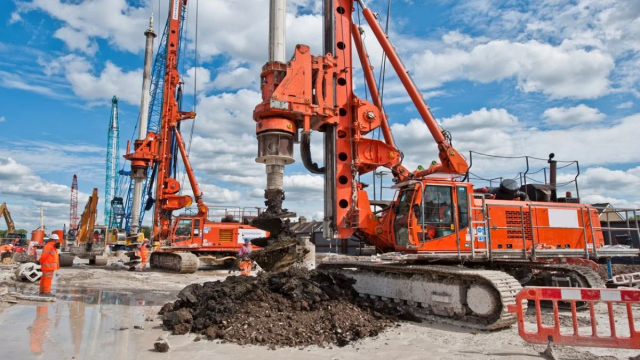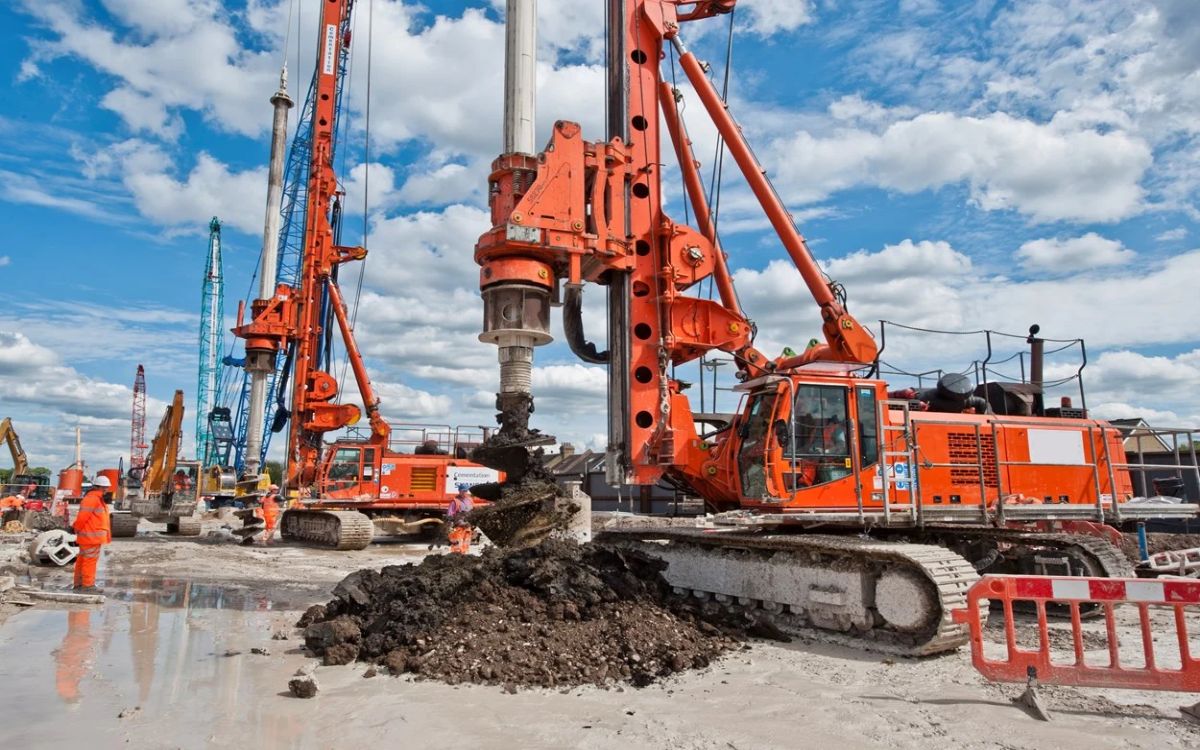CFA piling is a renowned technique that allows laying string foundations in noise or vibration-sensitive sites. And to implement this quietest form of piling, we need to hire piling contractors.
Piling contractors are experts in this specialised construction technique that involves drilling deep foundation piles using a continuous flight auger while injecting concrete or grout into the hole.
Piling contractors are proficient in providing a strong and reliable basis for a diverse range of structures, from buildings to bridges.
With an in-depth understanding of soil mechanics, the engineering principles and intricacies of piling, contractors ensure precise piles while adhering to safety and regulatory standards. Let’s explore more details about their roles in implementing a variety of construction projects:
Roles of Piling Contractors
CFA (Continuous Flight Auger) piling contractors have distinct roles and responsibilities specific to their expertise in CFA piling. Below are some of their key roles in ensuring safe and reliable construction
Design Collaboration:
CFA piling contractors collaborate with structural engineers and architects to develop a piling design that will meet the project’s technical requirements, considering soil conditions, site factors and construction challenges.
Site Investigation:
Contractors conduct thorough site investigations to assess soil properties, groundwater levels, and potential challenges that might impact the installation process or pile performance.
Pile Installation:
CFA piling contractors’ primary responsibility is executing the pile installation process. They ensure proper alignment, diameter, and length is considered while drilling the flight auger into the ground.
Quality Control:
Contractors monitor various aspects of pile installation, including concrete or grout flow rate, assessing pile integrity and ensuring consistent pile diameter. They also conduct load tests and pile integrity tests to validate the pile’s bearing capacity.
Safety Adherence:
Safety is paramount in any construction activity. CFA piling contractors implement strict safety protocols to protect workers, surrounding areas, and equipment during the piling process.
Environmental Considerations:
Contractors are well aware of the environmental impacts of CFA piling. They strive their best to produce minimum waste, guide about ways to avoid waste production and efficiently manage waste materials and comply with environmental regulations to prevent soil and groundwater contamination.
Project Management:
Contractors manage the entire project timeline, from planning and scheduling to resource allocation and coordination with other trades on the construction site. Effective project management ensures timely and efficient execution.
Post-Installation Activities:
Depending on the project requirements, contractors might be involved in post-installation activities such as monitoring pile performance, conducting maintenance, and addressing any issues that arise.
In brief, CFA piling contractors in London play a critical role in ensuring the stability, strong basis and longevity of the complex structures. It is their contributions that enable businesses and individuals to have their projects completed with excellence.
How Can You Hire a Suitable Piling Contractor?
When hiring a CFA (Continuous Flight Auger) piling contractor, it’s important to thoroughly evaluate their qualifications, experience, and capabilities to ensure the successful execution of your construction project. Here are some key factors to consider:
Expertise and Experience:
Experience and skills are one of the most significant factors that you should look for in a CFA piling contractor, as experience demonstrates their ability to handle various challenges and deliver quality results.
Reputation and References:
Research the contractor’s reputation within the industry. Request references from past clients to get firsthand feedback on their professionalism, work quality, and adherence to timelines.
Qualifications and Certifications:
Ensure that the contractor has the necessary licenses and certifications required by local authorities and industry standards. These certifications validate their competence and adherence to safety regulations.
Technical Knowledge:
A reputable contractor should have a deep understanding of soil mechanics, engineering principles, and the specifics of CFA piling techniques. They should be able to discuss project details with you in a knowledgeable and confident manner.
Equipment and Technology:
Check if the contractor has access to modern and well-maintained CFA piling equipment. The quality of equipment can significantly impact the efficiency and accuracy of the piling process.
Project Portfolio:
Review their portfolio to see examples of their previous CFA piling projects. This can give you an idea of their work quality, attention to detail, and the variety of projects they’ve handled.
Cost Transparency:
Obtain detailed cost estimates and understand what is included in the pricing. A reputable contractor should be transparent about costs and any potential extra charges that might arise.





